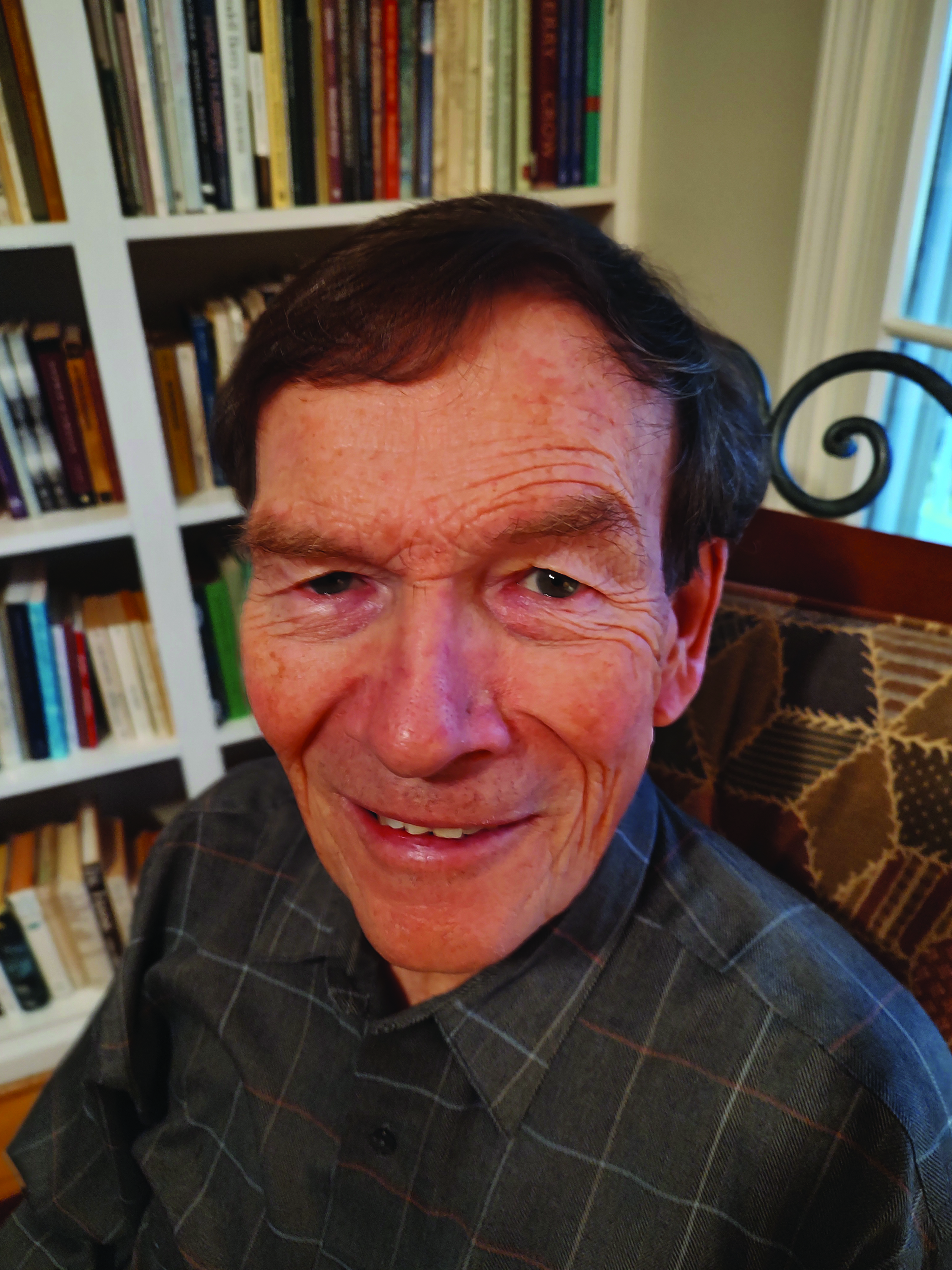

John Lang
“Lark Ascending” (2022) is Silas House’s seventh novel, his first since “Southernmost”’ (2018). Set at an unspecified time in a post-apocalyptic world, the book centers upon the title character’s quest for safety and community amid deadly violence, sorrow and loss. House takes the novel’s epigraph from Theodore Roethke’s poem “In a Dark Time,” quoting its opening line: “In a dark time, the eye begins to see.” Recent U.S. history has indeed been a dark time, and House extrapolates from some of its grimmer features to create the book’s nightmare era.
Divided into three numbered parts, “Lark Ascending” is organized around one of literature’s (and life’s) oldest motifs: the journey. Part 1, simply titled “Lark,” depicts the flight by boat of the 20-year-old Lark, his parents and others from North America to Ireland, a designated sanctuary. After nearly four weeks of harrowing sailing, the vessel reaches the Irish coast, only to be struck by a horrific storm and then attacked by military forces who oppose further immigration. Lark is seemingly the voyage’s sole survivor.
Part 2, “Before,” contains two titled subsections: “Seamus’s Story” and “Lark’s Story.” Seamus is a beagle, an unexpected survivor himself at a time when dogs had long been outlawed because of widespread famines. House skillfully avoids sentimentality in his portrait of Seamus while also deepening readers’ emotional engagement with the novel’s characters and the dangers they face. Whereas Lark’s experiences are presented from first-person point of view, Seamus’s are narrated from a tightly controlled third-person perspective. “Lark’s Story” recounts the events leading up to his family’s departure for Ireland, including his adolescent years in the mountains of Maine, to which his family and others had fled when fires devastated their homes in western Maryland. For Lark these years in Maine had felt like “paradise,” both because of his proximity to nature and because he had found love with Arlo, the son of his mother’s best friend, at least until fires also swept through Maine.
Part 3, “Seamus and Lark,” traces the pair’s travels together as Lark struggles to reach Glendalough in Ireland’s Wicklow Mountains, a destination that his parents had urged upon him. The site of a sixth-century monastic settlement established by St. Kevin, Glendalough is known as what Celtic lore calls a “thin place,” a locale where spiritual presences are more likely to be manifest. This portion of the novel is filled with dramatic incidents and introduces a striking new character, Helen, a member of the Irish Resistance against the Nays, the party in power. Helen aids Lark as his quest proceeds, and together they form a new family, relishing their “communion of words” after suffering severe isolation.
While some readers may find House’s treatment of the political and environmental issues the book raises too extreme or too overtly didactic, others will find them timely, even prescient. The ecological disasters caused by worldwide fires and ensuing famine, the potential wars and mass migrations sparked by such events, no longer seem remote possibilities. Nor does the political repression, especially of women, led by the book’s “Fundies” (Fundamentalists) here in the U.S. and by the Nays in the U.K. As Helen remarks, “The strangest part is how quickly it all went backward.
Yet ultimately “Lark Ascending,” in keeping with its title, maps an upward motion, one consistent with the 1881 poem by George Meredith whose title House’s echoes. Meredith’s poem appeared in his collection “Poems and Lyrics of the Joy of Earth.” It is the earth and its joys, especially nature’s wonders and the power of human love, that House affirms in this beautifully crafted novel.
John Lang is Professor of English Emeritus at Emory & Henry College, where he taught for 29 years and edited the college’s“Iron Mountain Review.” He is also the author of three books, including“Six Poets from the Mountain South”and“Understanding Ron Rash.”